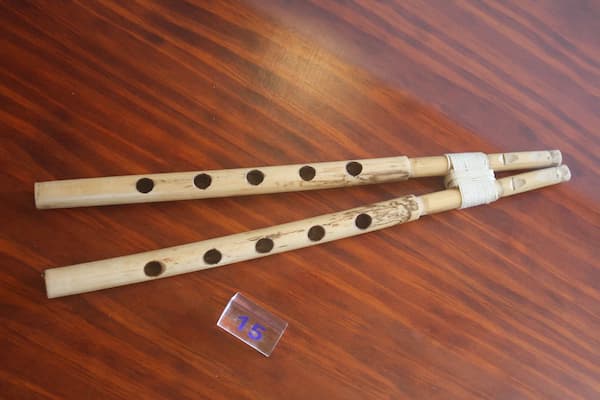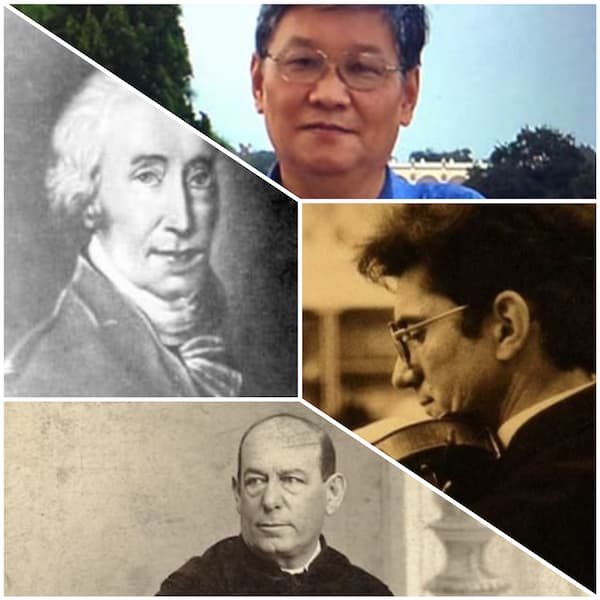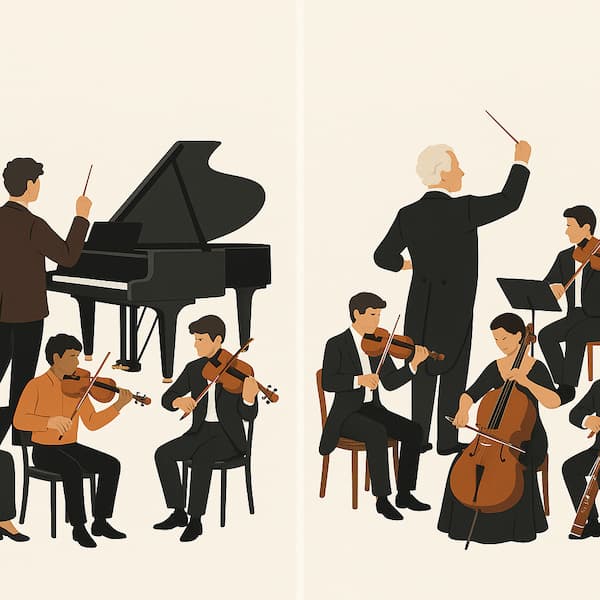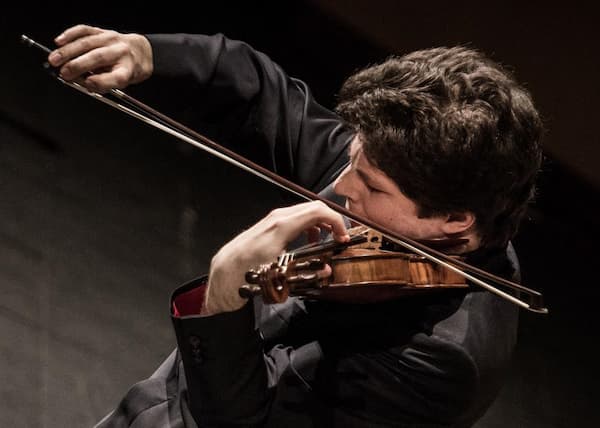As this article is being written around the Christmas period, and the Christian churches are filled with festive religious music, let’s have a better look at the different types of sacred music, their composers, and how they have evolved over time until today. If religious music is less present in the composer’s world than before and is perhaps in decline, it has nevertheless represented a considerable portion of the foundations of Western classical music – and an obligatory route for any music lover.
Mozart : Requiem in D K. 626 (Orchestre national de France / James Gaffigan)
Church music starts with plainchant and Gregorian chant; a liturgical chant destined to accompany the celebration of the Mass and other ritual services. It is present in the Catholic, Anglican, and Lutheran Church.
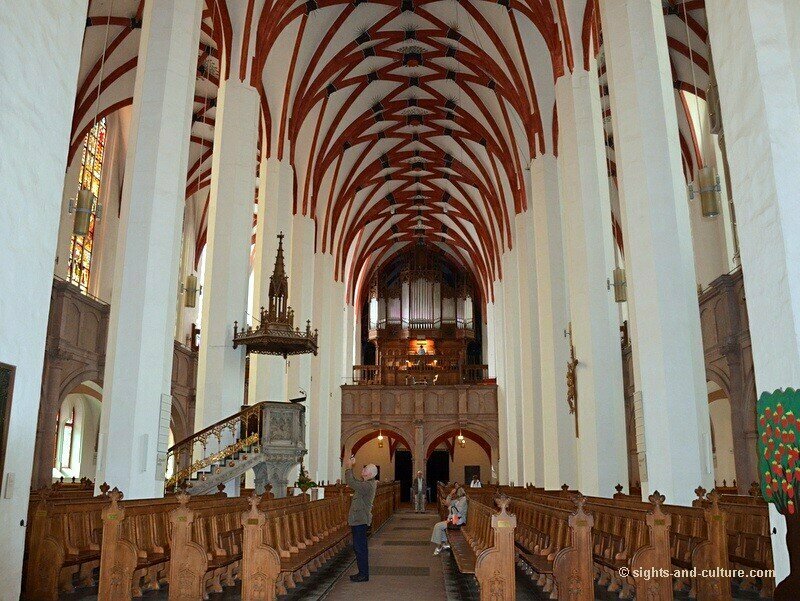
Interior of Thomaskirche © sights-and-culture.com
In addition to the music composed for the Ordinary mass, the Requiem Mass — the Mass of the Dead — takes a considerable part of music creation. In addition to this, there is a plethora of musical forms, from the canticles and motets to the cantatas, all of which form the catalog of hymns, particularly in Europe in the 18th and 19th centuries, and nowadays in Afro-American spiritual music. Smaller – in size and recurrence but not in quality – types of music for Church include carols — such as Christmas, Advent, and Easter carols too. The composer who has perhaps devoted his music the most to the Church — or perhaps to God — is of course Bach. The German composer has been a servant of the Church and all of his music was written exclusively for the services. Music which was not composed for the Church was dedicated to God. No aspect of Bach’s music was ever non-devotional. From Masses to countless cantatas, it is everywhere in Bach’s music and his writings often prove a fervent submission to the above. Haydn wrote a Stabat mater as well as oratorios, multiple masses, requiems and cantatas. Mozart too composed masses, oratorios, and cantatas and so did Beethoven, mostly through his choral works.

Statue of Bach at St. Thomas Church, Leipzig
After the Classical period, a few composers kept on writing for the Church, such as Mendelssohn who wrote many oratorios, cantatas, hymns, motets, and other psalm settings, or Schubert who wrote masses, requiems, and Stabat maters well as a quantity of smaller sacred works. Later in time, one to mention too is Berlioz, who wrote multiple sacred works, including a Messe solennelle, Grande messe des morts, and Te Deum – all of which would have a considerable impact on the music that followed it.
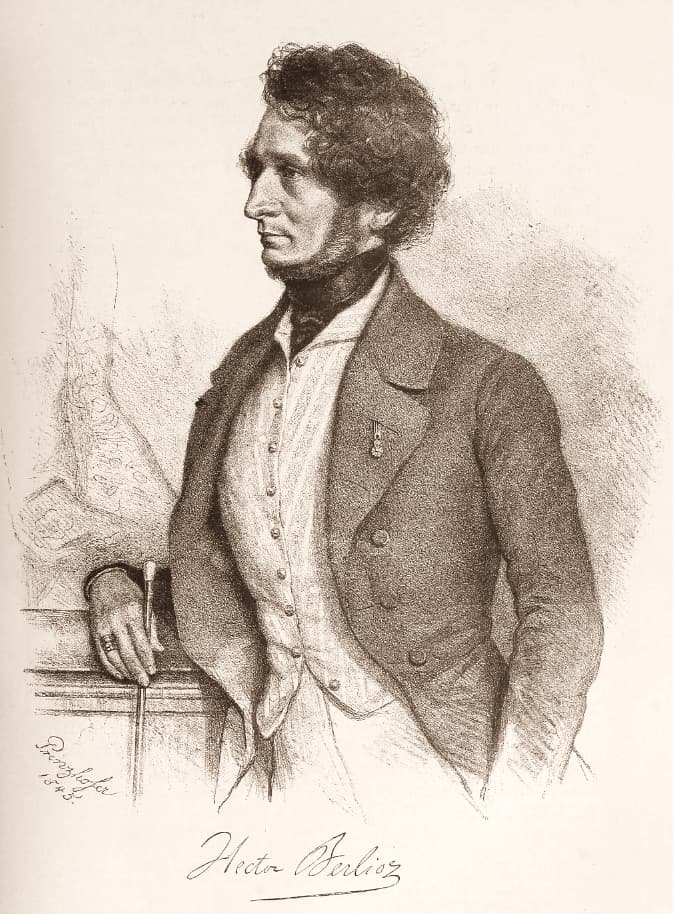
Hector Berlioz
Gradually, sacred music became less and less prominent, and non-religious chamber — and most importantly orchestral — music took over. Nowadays if there are a few exceptions, it seems that it is less of a necessity for composers to devote their works to faith – as it is perhaps less of a focal point in their life. A contemporary composer whose music is forever tied to religion is Pärt. Most of his work is vocal and choral — from Credo, to Passio, Stabat mater, and Magnificat — and each work carries a profound solemnity to it. Finally, this article would not be complete without the mention of Penderecki whose music, from the St Luke Passion to Polish Requiem, is often devoted to his faith. It seems that the sacred is still more present in the East than in the West.
Arvo Pärt: Credo
Interestingly enough, if religion has distanced itself from daily life, and in Occident, it is now rare to follow the tempi of the Church, and to find art inspired by religion and faith — it seems that music still finds inspiration and this is perhaps due to such a strong structure which provides the musician which an inspiring canvas to compose over. Sacred music has played such a key role in the development of music — regardless of the culture — that one is prompted to ask; does one need to be religious in order to write sacred music? If the question would have never been asked many years ago, today it feels relevant to ponder whether the use of music structures influenced by faith goes hand in hand with devotion and whether a composer might compose music destined for the Church, without himself being a devotee.
For more of the best in classical music, sign up for our E-Newsletter

